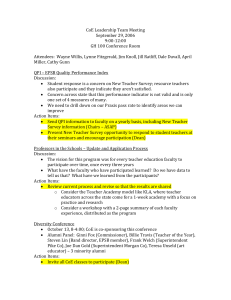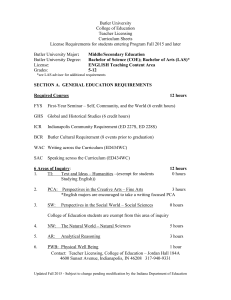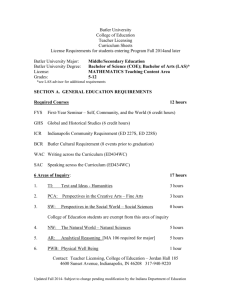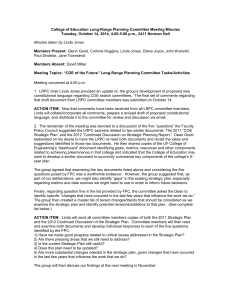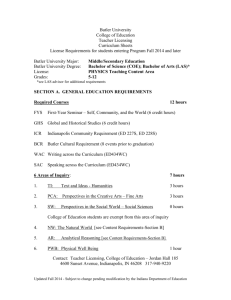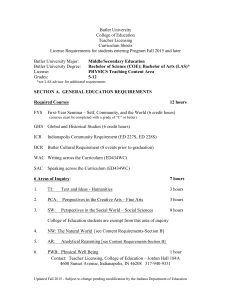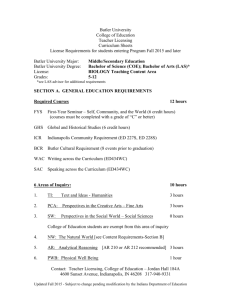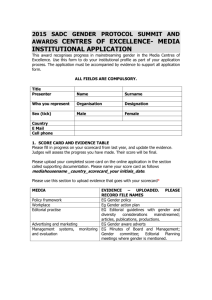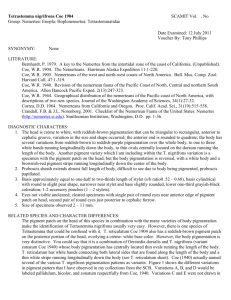Establishing a Delivery Center of Excellence
advertisement
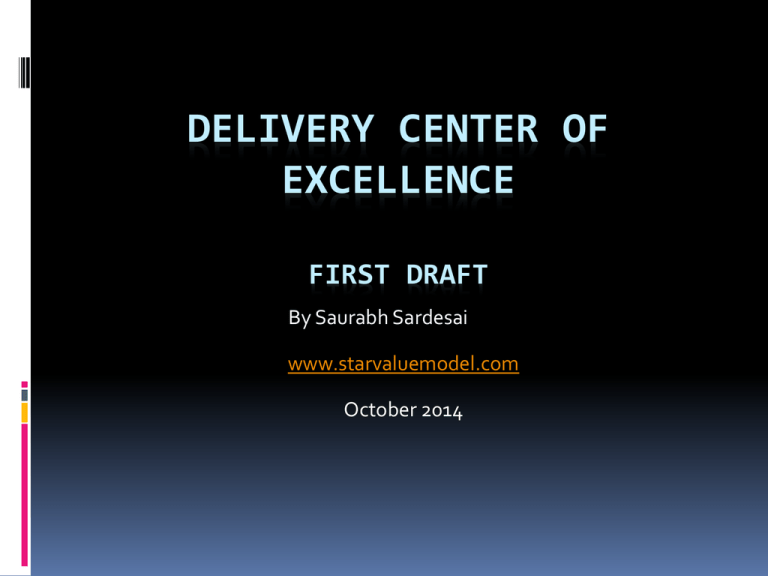
DELIVERY CENTER OF EXCELLENCE FIRST DRAFT By Saurabh Sardesai www.starvaluemodel.com October 2014 Objectives Establish a Delivery governance structure within the organization and ensure stakeholder participation Project delivery must be treated as a core business function that adds value to the overall business Access relevant knowledge and skills from a central place facilitating optimal utilization of resources Assist decision makers, senior stakeholders and project members to plan for and assess delivery effectiveness and its impact on internal and external stakeholders Position the COE as a important component of strategy to increase operational efficiency and project success rate as well as increase customer satisfaction Stakeholders Board of Directors and C level executives Internal customers External customers Project members Delivery managers Program managers Project managers Other company business units PMO office and staff Plan of action Initiate consultations with relevant stakeholders to get their opinion & feedback Establish a governance structure for the functioning of the Delivery COE Define stakeholders roles, authority and decision making hierarchy Define key performance indicators for the COE Identify and mitigate associated risks Establish mechanisms to track delivery schedule, progress and execution from the COE perspective Engage relevant stakeholders continuously to improve the customer delivery experience. Benefits of recommended model Standardized approach to project delivery Increases the long term potential of the program and individual projects Provide project visibility to the leadership team Track and report deliverables in a planned manner and avoid any overruns Standardized templates and reporting Alignment with business strategy Faster issue and risk resolution Assist PMs in attaining project goals Measuring COE success Delivering the project to the client on time and within the dates specified in the agreement, taking into account any amendments or approved change requests Achieving the financial objectives set forth for the project, taking into account any amendments or change controls Meeting all expectations related to quality and fulfilment of delivery requirements Adhering to an established delivery methodology measured by a joint governance board Achieving overall client satisfaction and repeat business Known within the organization as a reliable component of project/program execution having earned its trust and confidence Delivery governance structure A compelling business case, stating the objects of the COE and specifying the in-scope and out-of-scope aspects Define a clear communications and reporting protocol for all external and internal delivery communications Centralized delivery execution and metrics reporting Effective functions for management and senior stakeholder oversight and control Define and develop periodic reports for KPI analysis Manage and mitigate any risks or issues related to delivery or project management Define and manage the budget for the Delivery COE Centralized Delivery Mechanism Key delivery tasks Key project delivery milestones Execution of multiple projects at the same time Dependencies related to the delivery Assigned responsibilities in delivery plans Key deliverables of the project & schedule Delivery tracking and control mechanism Actual v/s Expected delivery metrics Measurement and analysis of any deviations Delivery Risk Management Plan The risk management plan is used to define the tolerance for risk throughout the delivery life cycle Define the methods for identifying, recording and addressing risk throughout the program. Suggest solutions to common delivery problems like time and cost over run etc Maintain a risk plan, risk log and history of steps taken to resolve or mitigate the risks Business Strategy Objectives Throughout delivery planning and execution, managers must ensure that the program sustains a connection to the business strategy. Clear communication about goals and objectives must be made to all relevant stakeholders Proper oversight should be provided by senior management to the delivery process COE – Strategic Review Delivery excellence metrics IT goals and strategy Financial goals and expectations Delivery resource planning Consulting partner review A business strategy review Project goals alignment Delivery execution reviews As the program proceeds, the program plan and schedule should provide for periodic strategy reviews by the program sponsor(s) and / or steering committee for meeting the delivery related targets A annual or bi-annual analysis must be done for all deliveries done for that period and issues and risks identified should be recorded and resolved satisfactorily Throughout any program, risks are bound to become issues needing resolution in accordance with the strategy defined in the risk management plan. COE monitoring & control Event log (includes identified risks, issues, changes, decisions and action items) Governance and execution procedures and policies that everyone needs to adhere to Standard reports and metrics management and dissemination to stakeholders Delivery lessons learnt sessions Surveys and feedback sessions with relevant stakeholders to improve the delivery process Conclusion Establishing a Delivery (COE) is a significant activity requiring participation from all the relevant stakeholders It should be treated as a critical component of your project execution and operations It must liaise with other business units such as the board, senior mgmt, HR, PMO etc It should be a central place from which all deliveries are managed Thank you
